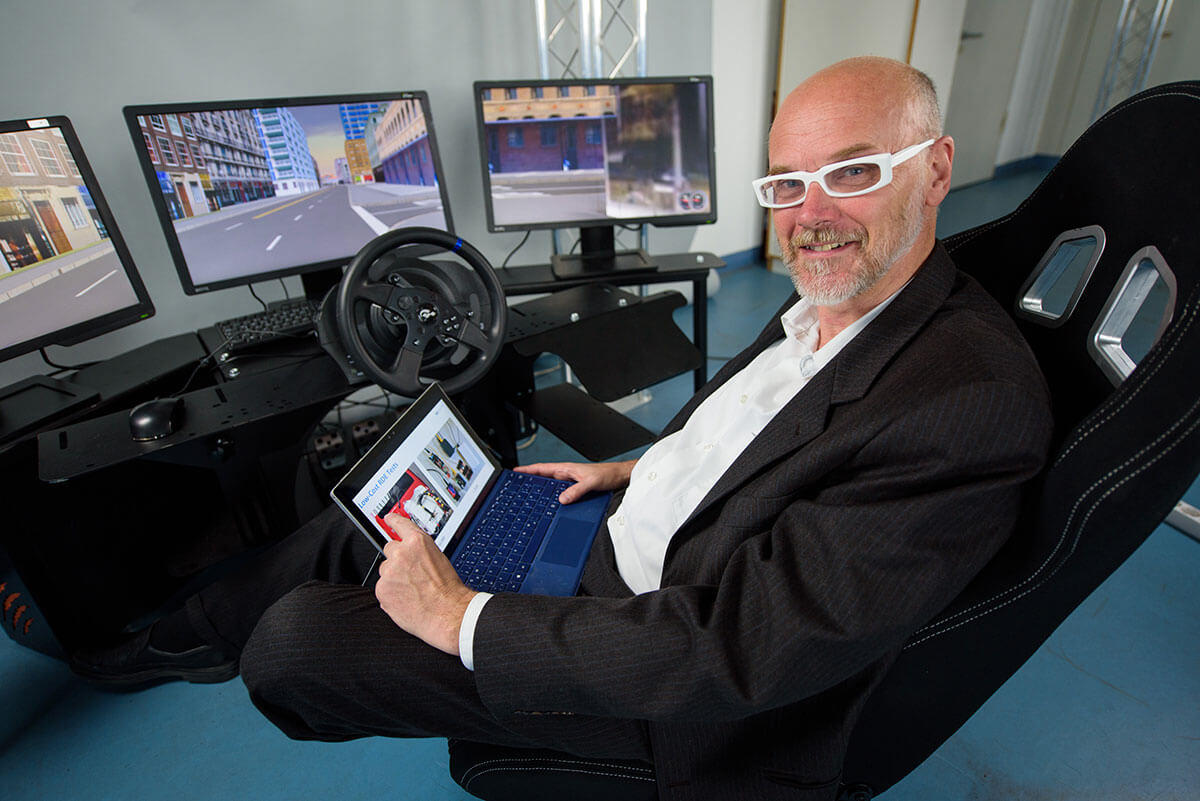New Collaborative Research Center: Software systems should explain their own behavior

Even experts have less and less of an understanding of the behavior of complex software systems nowadays. Meanwhile, these systems are increasingly involved in our daily lives, whether as intelligent home automation, in autonomous vehicles or in industrial production. Scientists from Saarland University, two Max Planck Institutes and the Dresden University of Technology now want to develop mechanisms in a new Collaborative Research Center to better communicate the behavior of complex software systems not only to experts but also to the general public. The German Research Foundation is funding this major project with eleven million euros over four years.
In March of this year, the news of a traffic accident in the US city of Tempe, in which a pedestrian was killed, spread around the world. A self-propelled car from the “Uber” service company hit a woman. It was not until weeks later that experts were able to identify the cause: Although the vehicle’s sensors had recognized the woman, the on-board computer had classified their message as false. Holger Hermanns, professor of computer science and head of the Dependable Systems and Software Group at Saarland University, is not surprised. “We also receive error messages in the cars on our roads, which even the specialists in garages can’t make sense of,” explains Hermanns.
Such an increasing incomprehensibility also applies to software in other areas of everyday life, starting with the increasing networking of appliances in the home, through software-controlled production in modern factories, to so-called smart cities, where software systems are planned to make the lives of individuals more comfortable, safer and more energy-efficient in the future. “Currently, no computer-aided systems contain concepts to explain their own behavior. Instead, they calculate results and pass them on, without any capabilities for oversight,” says Hermanns.
Together with other colleagues from Saarland University, the Max Planck Institutes for Computer Science and Software Systems, and the Technische Universität Dresden, Hermanns therefore designed the Collaborative Research Center “Foundations of Perspicuous Software Systems”. The researchers want to lay the scientific foundations for computer-aided systems which explain their functionality and behavior themselves. The scientists describe this new type of software as “perspicuous systems”. What is also new is that these systems explain themselves both to software engineers during development and to laypersons when using the software or in the event of malfunctions. “The interaction is supposed to resemble a navigation device that not only tells us what to do, but also why,” explains Holger Hermanns. To put this vision into practice, the researchers are working on 15 subprojects, combining formal verification methods with methods from human-machine interaction. They also deal with the mechanisms of machine learning. In this way, accidents such as the one described above could be ruled out in the future.
Besides Holger Hermanns, Professor Vera Demberg and Professors Bernd Finkbeiner, Matthias Hein, Jörg Hoffmann and Antonio Krüger from Saarland University are involved in the new transregional Collaborative Research Centre. Christoph Weidenbach from the Max Planck Institute for Computer Science and Maria Christakis, Rupak Majumdar and Joel Ouaknine from the Max Planck Institute for Software Systems are also involved. The Technische Universität Dresden is represented by professors Franz Baader, Christel Baier, Raimund Dachselt, Christof Fetzer, Stefan Gumhold and Markus Krötzsch as well as researchers Sarah Gaggl and Stefan Borgwardt. The German Research Foundation is supporting the Collaborative Research Centre with eleven million euros over four years. Around six million euros will go to Saarland.
Further information:
www.perspicuous-computing.science
Questions can be directed to:
Prof. Dr.-Ing. Holger Hermanns (Speaker)
Reliable Systems and Software
Saarland Informatics Campus
Saarland University
Phone: +49 681 302-5631
E-mail: hermanns@cs.uni-saarland.de
Prof. Dr.-Ing. Raimund Dachselt (site spokesman)
Institute for Software and Multimedia Technology
Dresden University of Technology
Phone: +49 351 463-38516
E-mail: raimund.dachselt@tu-dresden.de
Editorial office:
Gordon Bolduan
Competence Center Computer Science Saarland
Saarland Informatics Campus
Phone: +49 681 302-70741
E-mail: gbolduan@mmci.uni-saarland.de
Die Öffentlichkeitsarbeit am Saarland Informatics Campus wird unterstützt durch das Kompetenzzentrum Informatik Saarland, gefördert aus Mitteln des Europäischen Fonds für regionale Entwicklung (EFRE) und Mitteln der Staatskanzlei Saarland.



